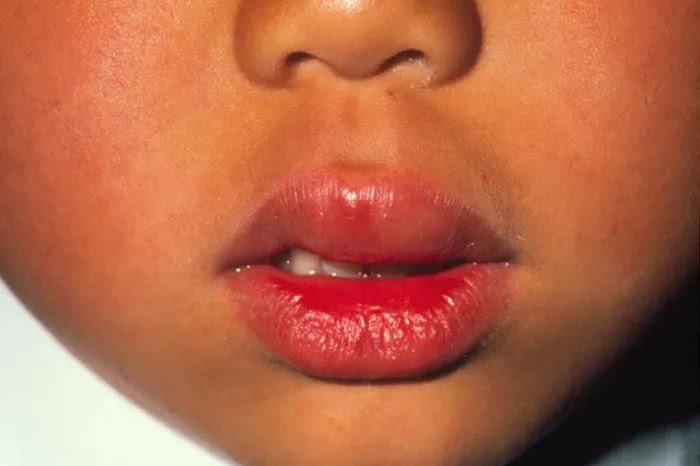Allergic rhinitis, commonly known as hay fever, is a prevalent condition affecting millions worldwide. Characterized by symptoms such as nasal congestion, sneezing, itching, and watery eyes, allergic rhinitis can significantly impair quality of life if left untreated. While avoidance of allergens remains the cornerstone of management, medications play a crucial role in alleviating symptoms and improving daily functioning for individuals with allergic rhinitis. In this comprehensive guide, we delve into the various medications available, their mechanisms of action, efficacy, and potential side effects to help you make informed decisions about managing this troublesome condition.
Understanding Allergic Rhinitis
Before delving into medications, it’s essential to understand the underlying mechanisms of allergic rhinitis. Allergic rhinitis is an inflammatory disorder of the nasal mucosa triggered by exposure to allergens such as pollen, dust mites, pet dander, or mold. Upon exposure, the immune system mounts an exaggerated response, releasing inflammatory mediators such as histamine, leukotrienes, and cytokines. These mediators cause the hallmark symptoms of allergic rhinitis, including nasal congestion, sneezing, itching, and rhinorrhea.
Non-Pharmacological Management
While medications play a vital role in managing allergic rhinitis, non-pharmacological interventions can complement treatment efforts and improve symptom control. Strategies such as allergen avoidance, nasal irrigation, and environmental modifications can help reduce allergen exposure and alleviate symptoms. Additionally, allergen immunotherapy, either through subcutaneous injections or sublingual tablets, can modulate the immune response and provide long-term relief for individuals with persistent allergic rhinitis.
Intranasal Corticosteroids
Intranasal corticosteroids (INCS) are considered first-line therapy for allergic rhinitis due to their potent anti-inflammatory effects and efficacy in controlling nasal symptoms. These medications work by inhibiting the production of inflammatory mediators and reducing nasal mucosal swelling. Commonly prescribed INCS include fluticasone propionate, budesonide, mometasone furoate, and triamcinolone acetonide. They are available as nasal sprays and are generally well-tolerated, with minimal systemic side effects when used at recommended doses.
Antihistamines
Antihistamines are another cornerstone of allergic rhinitis treatment, primarily targeting the histamine-mediated pathway of allergic inflammation. These medications block the effects of histamine, thereby reducing sneezing, itching, and rhinorrhea. First-generation antihistamines such as diphenhydramine and chlorpheniramine are effective but often cause sedation and cognitive impairment. Second-generation antihistamines such as loratadine, cetirizine, and fexofenadine offer comparable efficacy with less sedation, making them preferred choices for daytime use.
Decongestants
Decongestants provide rapid relief of nasal congestion by constricting blood vessels in the nasal mucosa, thereby reducing swelling and improving airflow. Phenylephrine and pseudoephedrine are common oral decongestants available over-the-counter. While effective, prolonged use of oral decongestants can lead to rebound congestion and other adverse effects such as hypertension and insomnia. Nasal decongestant sprays, such as oxymetazoline and phenylephrine, offer localized relief but should be used cautiously to avoid rebound congestion and nasal mucosal damage.
Combination Therapies
In cases of moderate to severe allergic rhinitis, combination therapy involving multiple medication classes may be warranted to achieve optimal symptom control. Combination intranasal corticosteroid and antihistamine sprays offer the benefits of both medications in a single formulation, enhancing convenience and compliance. Additionally, combination therapies incorporating intranasal corticosteroids with nasal antihistamines or decongestants may provide additive or synergistic effects in relieving nasal symptoms.
Leukotriene Receptor Antagonists
Leukotriene receptor antagonists, such as montelukast, block the action of leukotrienes, inflammatory mediators involved in allergic rhinitis pathogenesis. While less commonly used than intranasal corticosteroids or antihistamines, leukotriene receptor antagonists may be beneficial as adjunctive therapy in individuals with concomitant asthma or exercise-induced bronchoconstriction.
Immunomodulators
Immunomodulators such as omalizumab, a monoclonal antibody targeting immunoglobulin E (IgE), may be considered in individuals with severe, uncontrolled allergic rhinitis refractory to conventional treatments. Omalizumab works by binding to circulating IgE antibodies, thereby reducing the release of inflammatory mediators triggered by allergen exposure. While effective, immunomodulators are typically reserved for patients with significant disease burden and may require regular administration under medical supervision.
Alternative and Adjunctive Therapies
Several alternative and adjunctive therapies are purported to alleviate symptoms of allergic rhinitis, although evidence supporting their efficacy is limited. These include herbal supplements (e.g., butterbur, quercetin), acupuncture, nasal saline sprays, and steam inhalation. While some individuals may experience subjective symptom improvement with these modalities, their use should be approached with caution, and consultation with a healthcare provider is advisable to ensure safety and appropriate management.
Conclusion
Allergic rhinitis is a common and bothersome condition characterized by nasal congestion, sneezing, itching, and rhinorrhea. While allergen avoidance remains fundamental, medications play a crucial role in alleviating symptoms and improving quality of life for affected individuals. Intranasal corticosteroids, antihistamines, and decongestants are among the mainstays of treatment, with each class offering unique benefits and considerations. Combination therapies and adjunctive treatments may be necessary in cases of moderate to severe allergic rhinitis. Ultimately, the choice of medication should be tailored to the individual patient based on symptom severity, comorbidities, medication tolerability, and treatment goals, with regular follow-up to assess response and adjust therapy as needed. By understanding the available treatment options and their mechanisms of action, healthcare providers can effectively manage allergic rhinitis and improve outcomes for their patients.
[inline_related_posts title=”You Might Be Interested In” title_align=”left” style=”list” number=”6″ align=”none” ids=”5981,5983,5991″ by=”categories” orderby=”rand” order=”DESC” hide_thumb=”no” thumb_right=”no” views=”no” date=”yes” grid_columns=”2″ post_type=”” tax=””]
































